|
Genres, Themes, Actors, and Directors:
- Dennis Hopper Films
- Diane Lane Films
- Francis Ford Coppola Films
- Juvenile Delinquents
- Mickey Rourke Films
- Nicolas Cage Films
- Siblings
Review:
Frances Ford Coppola’s adaptation of S.E. Hinton’s novel is a visually poetic, directorially innovative look at a teenage hoodlum navigating life on the streets while dealing with dysfunctional family dynamics and romantic entanglements. Unfortunately, while we get a strong sense of the milieu Rusty James (Dillon) lives in, he isn’t a particularly appealing or charismatic protagonist; he may be quick on the rumble but isn’t smart enough to (for instance) foresee a rivalrous take-down by his gang-mate (Nicolas Cage), and it’s hard to feel much pity in general for him.
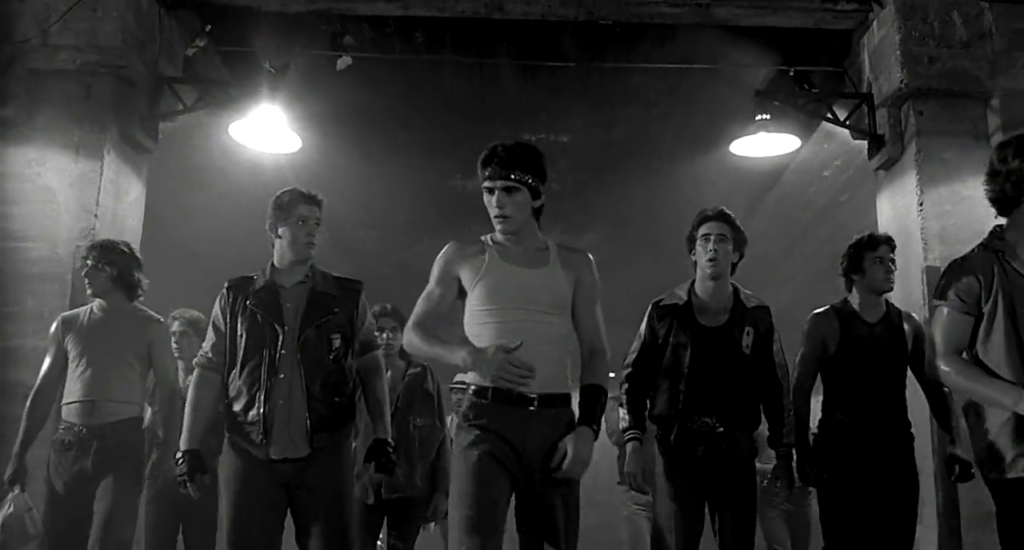
Hopper is well-cast (if type-cast) as Dillon’s dad:
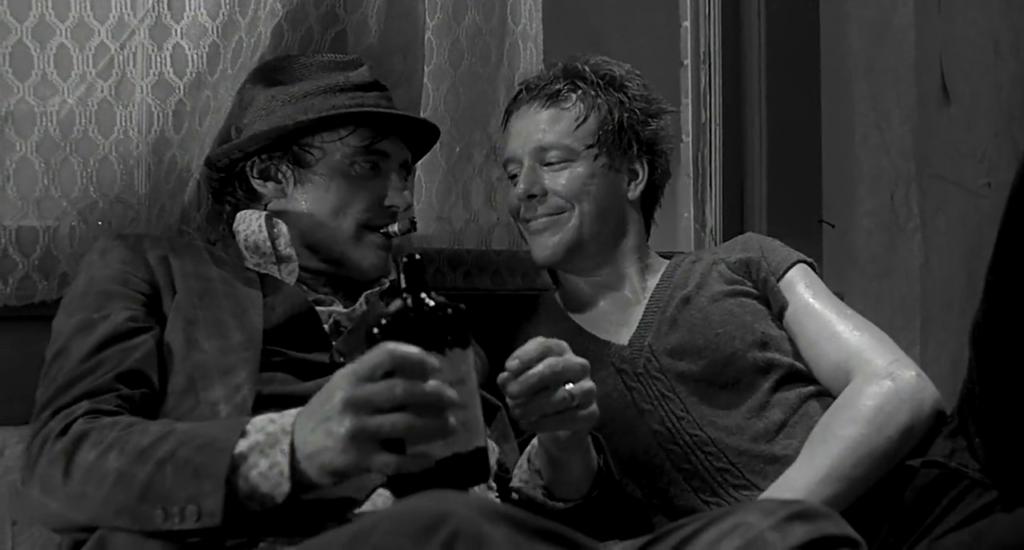
… Lane is appropriately sexy as Dillon’s love-interest:
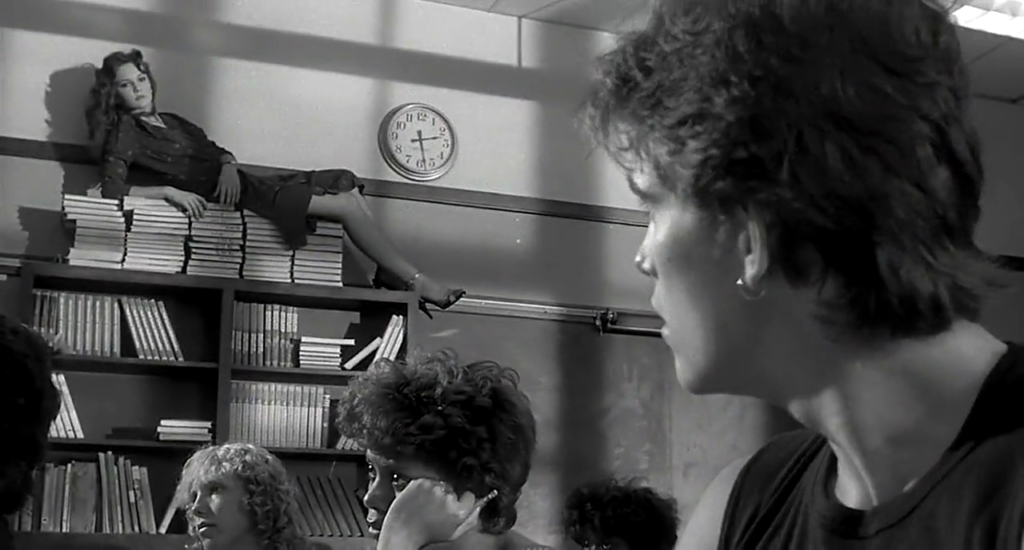
… and Rourke projects a convincing aura of paranoid world-weariness.
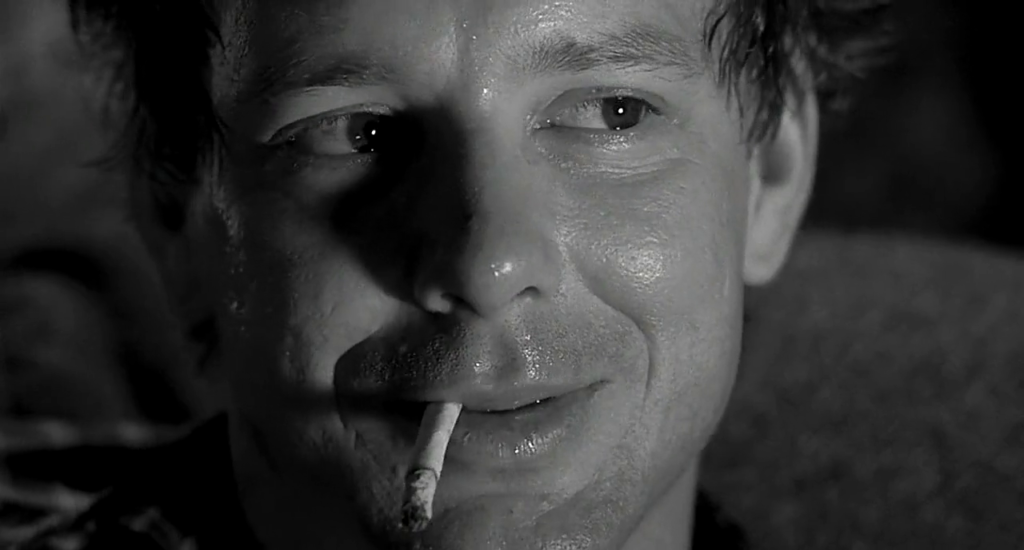
Ultimately, however, the visuals nearly overtake the storyline in Rumble Fish, and are the primary reason for viewing it at least once; see additional stills below for a sense of what’s in store.
Redeeming Qualities and Moments:
- Innovative direction
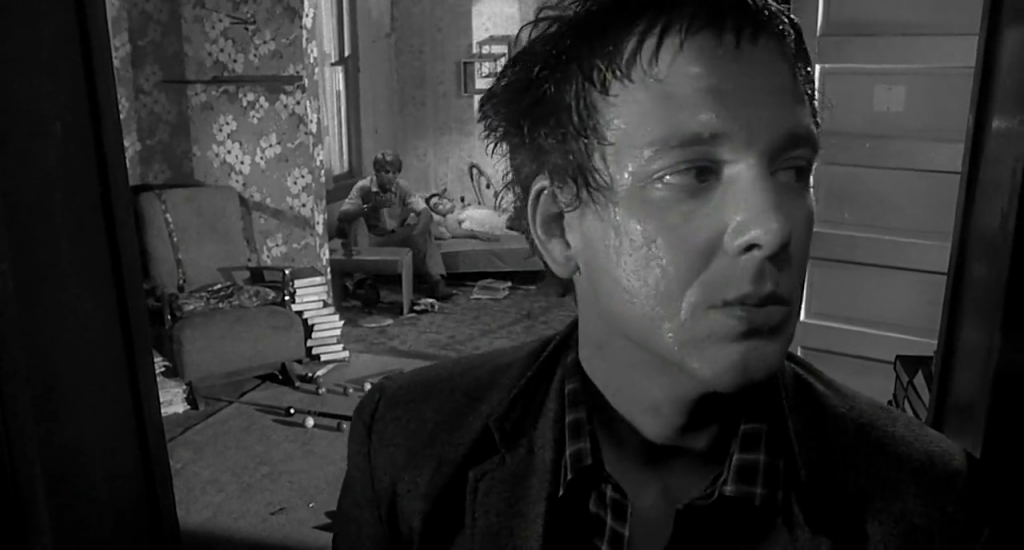
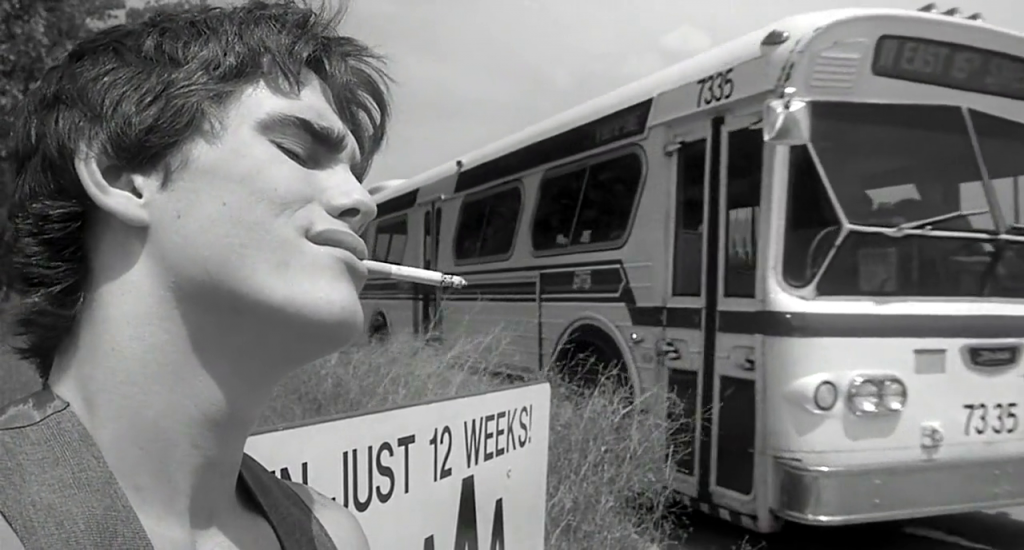
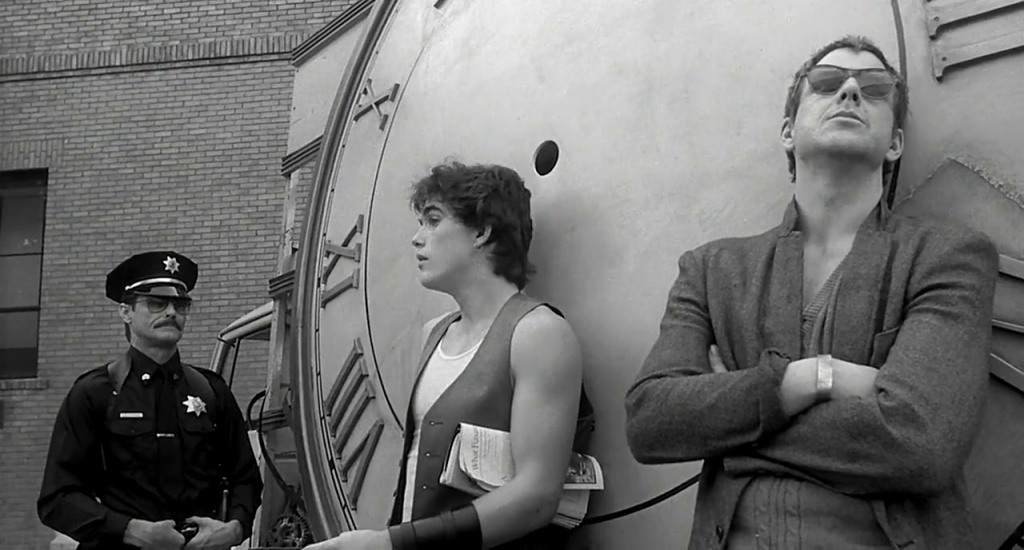
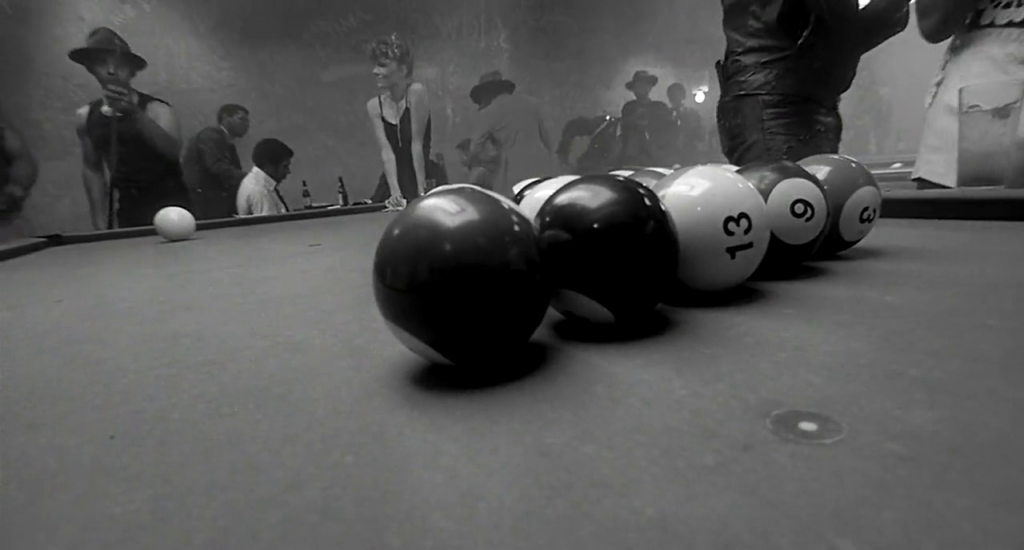
- Excellent use of local (Tulsa, Oklahoma — though left unnamed) sets

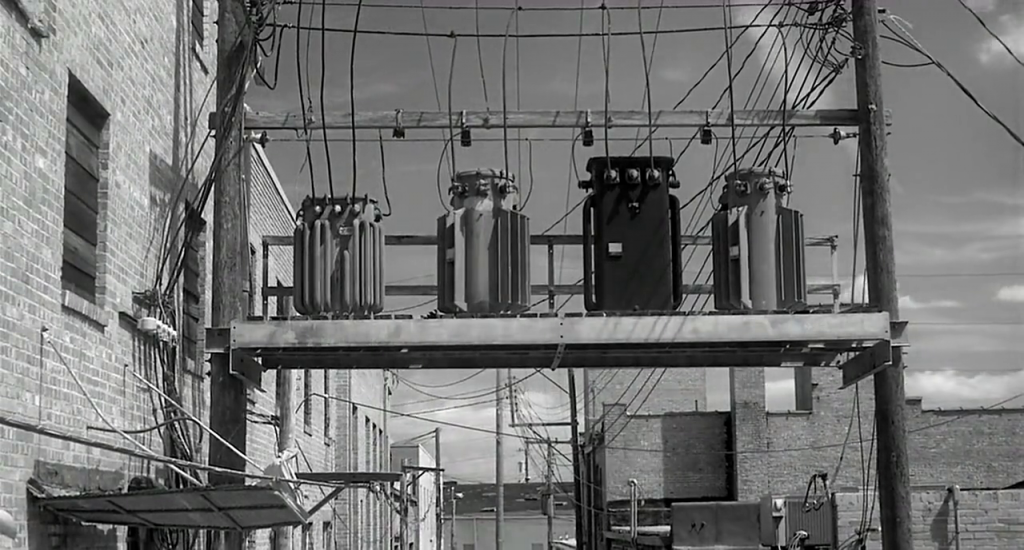
- Stephen H. Burum’s cinematography (be sure to watch the Blu-Ray DVD)
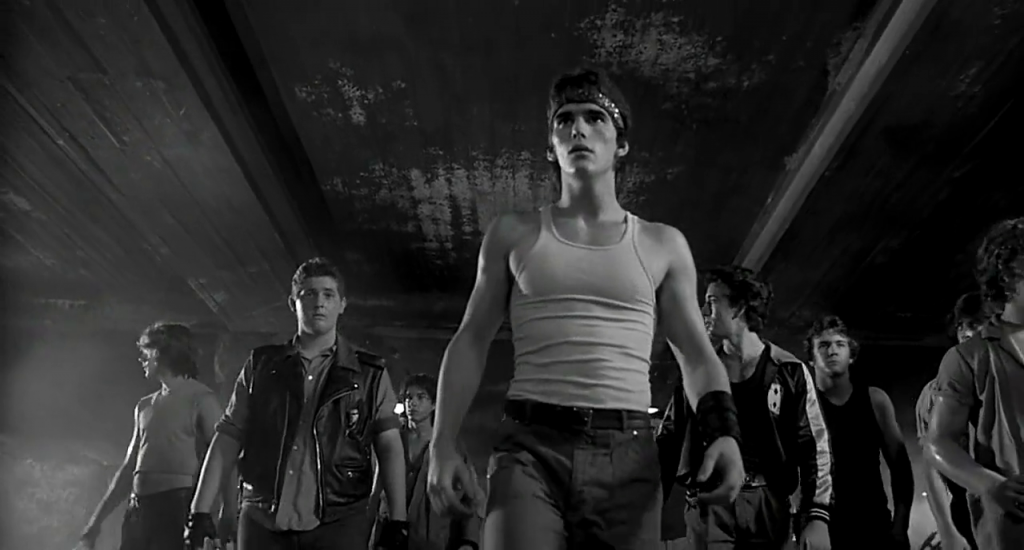
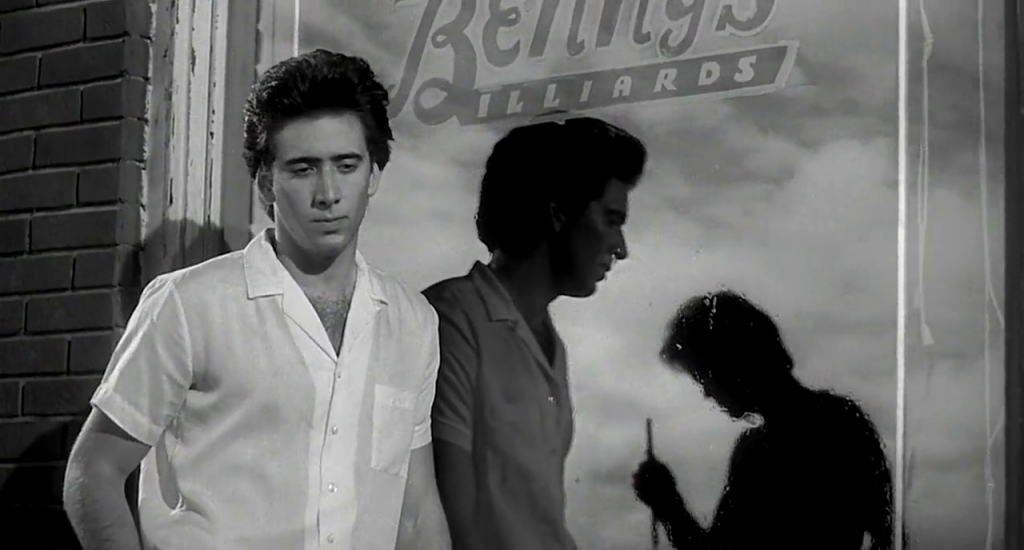
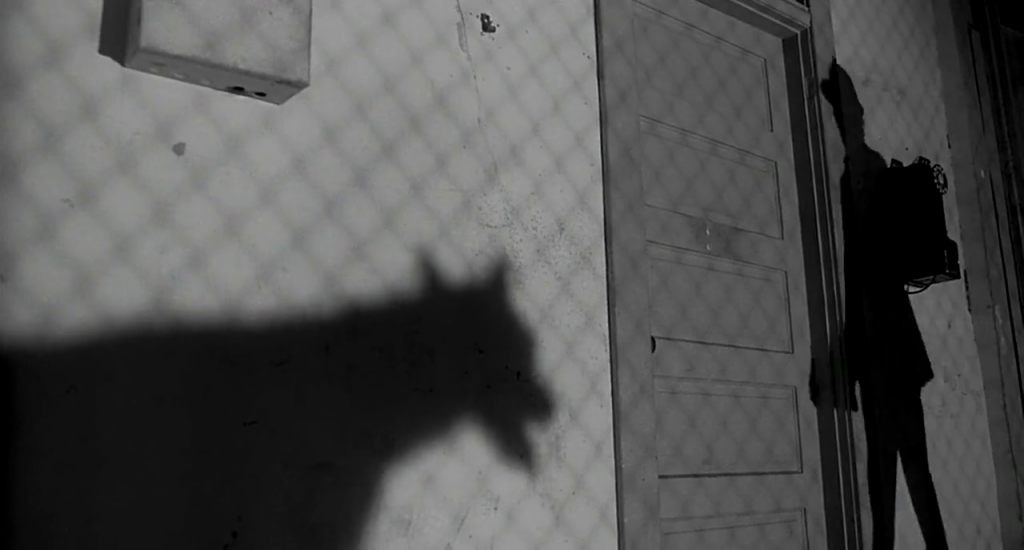
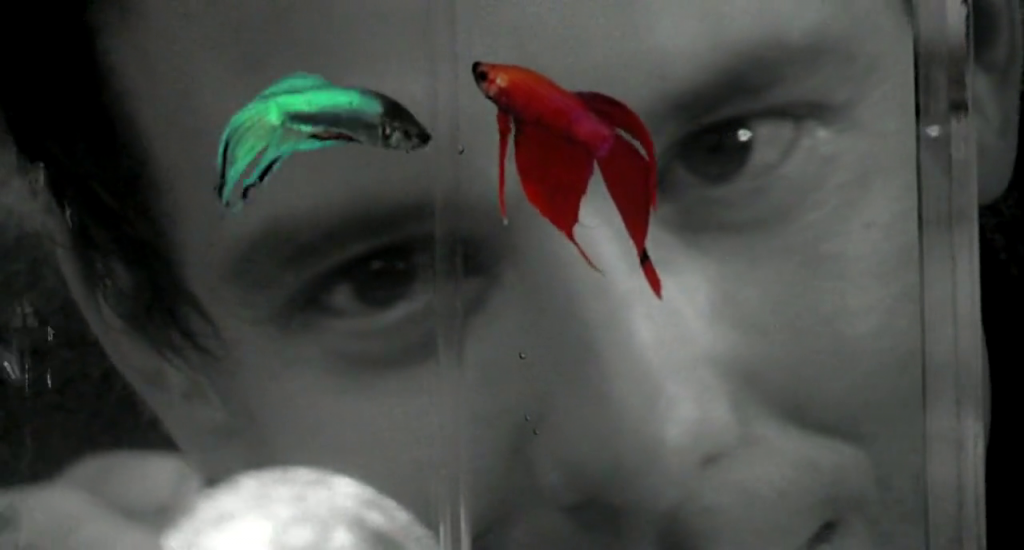
Must See?
Yes, as a visually stunning cult favorite.
Categories
- Cult Movie
- Important Director
Links:
|
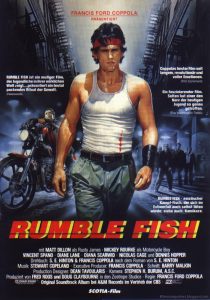














One thought on “Rumble Fish (1983)”
Not must-see.
Coppola’s film has a small message inside it (midway, Rourke says, “Y’know, if you’re gonna lead people, you have to have somewhere to go.”) – but, that solid statement aside, the film spends the rest of its time (by way of its artistic vision and Burum’s arresting cinematography) almost fetishizing those looking for a leader and those who are just as happy to remain without one.
Coppola is, of course, a good director – but here he appears caught up in a pseudo-‘romantic’ view of an empty world. If this is a cautionary tale, what’s hinted at is the idea of keeping yourself free of everything that impedes being true to yourself. But I’m not sure how much the target audience (the young) would care about the little the film has to say.